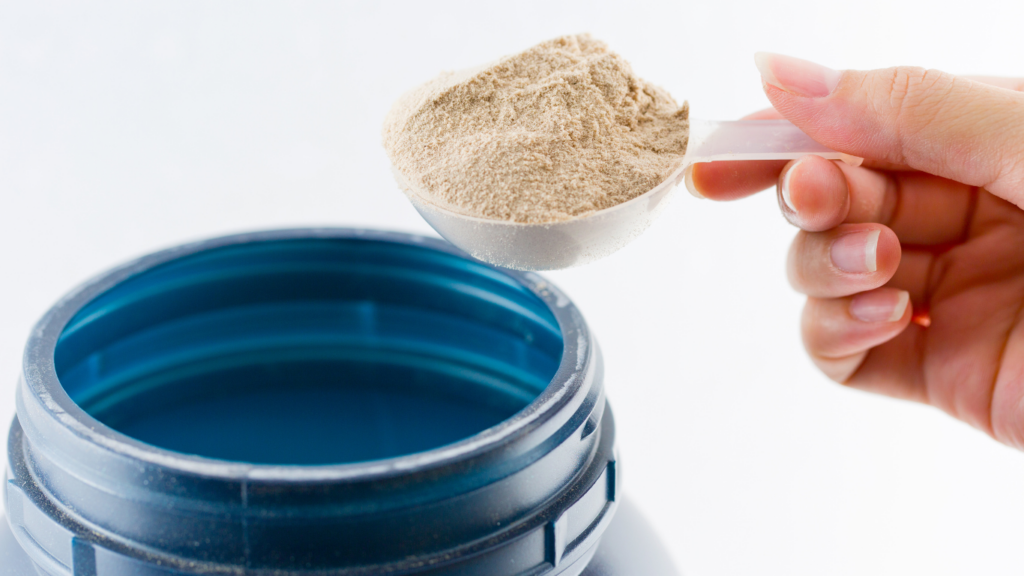Being a fitness enthusiast myself, staying updated on the latest dietary guidelines is crucial for optimizing performance and achieving fitness goals. In the ever-evolving landscape of nutrition, understanding what to eat and when can make a significant difference in our fitness journey.
The latest dietary guidelines offer valuable insights into fueling our bodies efficiently and effectively. As I delve into the newest recommendations, I’ll explore how these guidelines can impact our energy levels, recovery, and overall well-being.
By following evidence-based practices, we can fine-tune our diets to support our active lifestyles and enhance our performance. Let’s uncover the key takeaways from the latest dietary guidelines and how they can empower us to make informed choices for a healthier, fitter future.
Overview of the Latest Dietary Guidelines for Fitness Enthusiasts
Exploring the most recent dietary guidelines for fitness enthusiasts is crucial to optimizing performance and achieving fitness goals. Understanding what to eat and when to eat can have a significant impact on energy levels, recovery, and overall well-being.
By following evidence-based practices, individuals can tailor their diets to support active lifestyles and enhance their athletic performance. These guidelines provide valuable insights that empower individuals to make informed choices for a healthier future.
Key Changes in the Dietary Guidelines
Staying informed about the latest dietary guidelines is crucial for fitness enthusiasts like me. It’s essential to understand how specific changes in these guidelines can impact my performance and overall fitness goals.
Let’s delve into the key modifications that have been introduced.
Emphasis on Macronutrient Balance
When it comes to the latest dietary guidelines for fitness enthusiasts, a significant change revolves around the emphasis on maintaining a proper macronutrient balance. This means ensuring that my diet includes an appropriate ratio of carbohydrates, proteins, and fats to fuel my workouts efficiently.
By focusing on this balance, I can optimize my energy levels, support muscle growth and repair, and enhance my overall physical performance.
Importance of Hydration
Another crucial aspect highlighted in the recent dietary guidelines is the importance of hydration for fitness enthusiasts. Proper hydration is key to maintaining peak performance during workouts and aiding in post-exercise recovery.
These guidelines emphasize the significance of staying adequately hydrated throughout the day, especially before, during, and after exercise sessions. By meeting my body’s fluid needs, I can improve my endurance, prevent fatigue, and support overall well-being as I pursue my fitness goals.
Recommended Foods for Fitness Enthusiasts
When it comes to optimizing my diet as a fitness enthusiast, incorporating the right foods is crucial. Here’s a breakdown of recommended foods to help you achieve your fitness goals:
Lean Proteins
Including lean proteins like chicken, turkey, fish, tofu, and legumes in my diet is essential for muscle repair and growth. These protein sources are low in saturated fats and provide the necessary amino acids for post-workout recovery.
Strategies for Implementing the Guidelines
Exploring strategies for implementing the latest dietary guidelines can further enhance your fitness journey while optimizing your overall well-being. By integrating these guidelines into your daily routine, you can unlock your true potential and achieve your fitness goals more effectively.
- Meal Planning and Preparation: When it comes to aligning your diet with the recommended guidelines, meal planning and preparation are essential. By dedicating time to plan your meals in advance, you can ensure that your nutritional needs are met throughout the day. Preparing meals ahead of time can also help you avoid unhealthy food choices when time is limited.
- Balanced Macronutrient Intake: Focus on maintaining a balanced intake of macronutrients, including carbohydrates, proteins, and fats. Incorporate a variety of nutrient-dense foods such as whole grains, lean proteins, healthy fats, and fruits and vegetables into your meals. This balance is crucial for sustaining energy levels, supporting muscle recovery, and promoting overall health.
- Hydration Practices: Proper hydration is key to optimizing your physical performance and aiding in recovery. Aim to drink an adequate amount of water throughout the day, especially before, during, and after exercise. Monitoring your fluid intake and choosing hydrating foods can help you stay properly hydrated and prevent dehydration during workouts.
- Mindful Eating Habits: Adopting mindful eating habits can help you make healthier food choices and build a positive relationship with food. Pay attention to your hunger cues, eat slowly, and savor each bite to enhance your eating experience. Additionally, being mindful of portion sizes can prevent overeating and support weight management goals.
- Regular Physical Activity: Complementing a balanced diet with regular physical activity is essential for overall fitness and well-being. Make time for a combination of cardiovascular exercises, strength training, and flexibility workouts to support your fitness goals. Engaging in consistent physical activity can further enhance the benefits of following dietary guidelines.
By incorporating these strategies into your lifestyle, you can effectively implement the latest dietary guidelines for fitness enthusiasts and optimize your journey towards improved performance and well-being. Taking proactive steps to align your diet with evidence-based recommendations can empower you to make sustainable changes for long-term health and fitness success.


 Dawnny Armstrongster, the visionary founder of Toe Back Fitness, is a passionate advocate for health and wellness, driven by a mission to empower individuals to lead active, balanced lives. With a deep understanding of fitness and injury prevention, Armstrongster has cultivated a platform that merges expert insights with practical advice, making fitness accessible to people at all levels. Her commitment to promoting sustainable lifestyle habits and safe workout practices reflects her dedication to long-term well-being. Under her leadership, Toe Back Fitness has become a trusted resource for those seeking to enhance their physical health, choose the right gear, and build routines that align with their fitness goals.
Dawnny Armstrongster, the visionary founder of Toe Back Fitness, is a passionate advocate for health and wellness, driven by a mission to empower individuals to lead active, balanced lives. With a deep understanding of fitness and injury prevention, Armstrongster has cultivated a platform that merges expert insights with practical advice, making fitness accessible to people at all levels. Her commitment to promoting sustainable lifestyle habits and safe workout practices reflects her dedication to long-term well-being. Under her leadership, Toe Back Fitness has become a trusted resource for those seeking to enhance their physical health, choose the right gear, and build routines that align with their fitness goals.